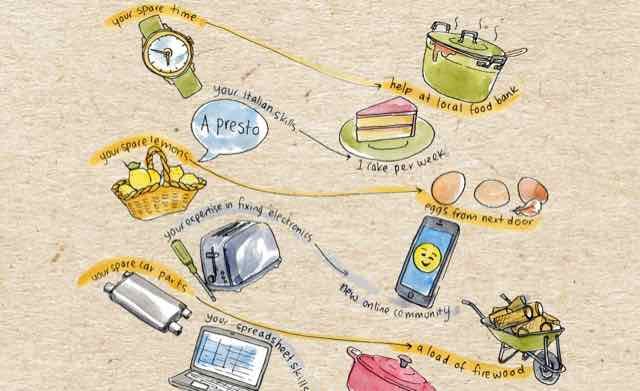
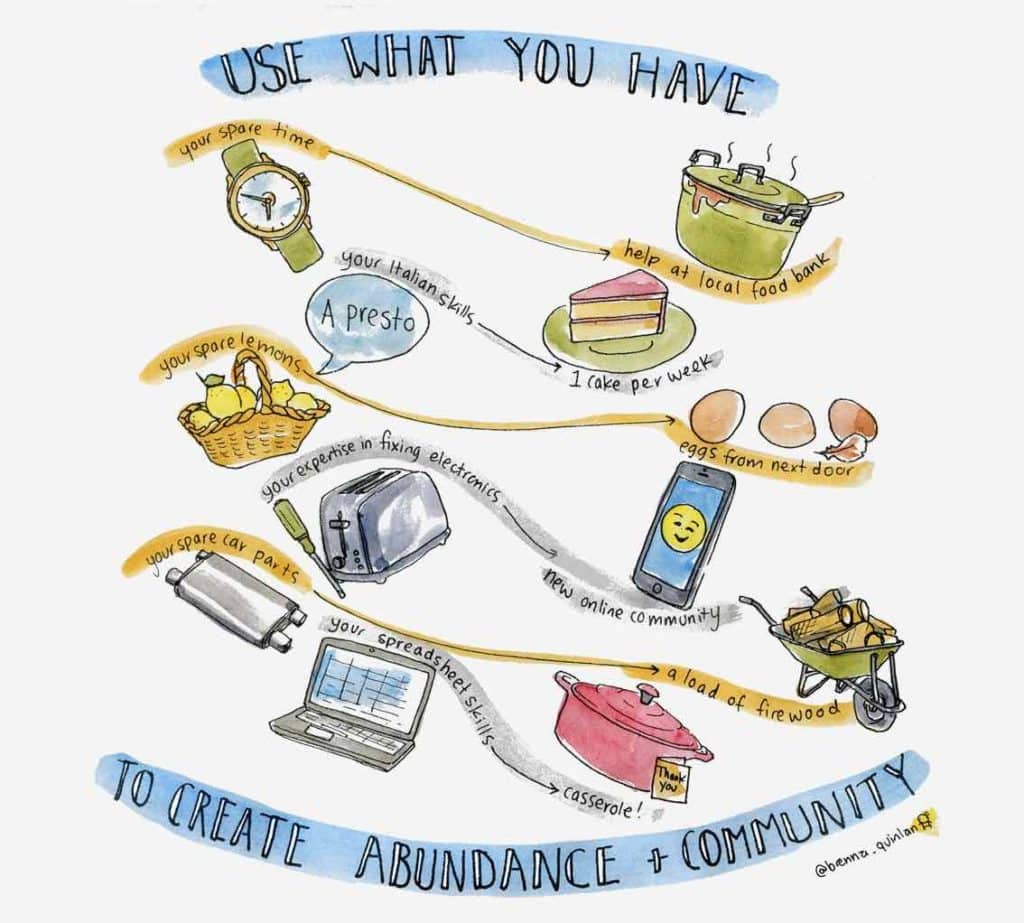
You might not think it, but one excellent way to ‘obtain a yield’ is to give out first, and then receive. In this everyday action, we invite you to work on discovering what you have an abundance of, and figure out how to pass that along.
In turn, this can bring other yields back around to you, while cultivating community at the same time, which is excellent for everyone.
We all have an abundance of something, and most of us have an abundance of many things. The trick is identifying them – what do you have a lot of? And how could you share that? Look around you, and have a think. We’re not just talking things, here – we’re also talking about time, and skills, and knowledge.
You might have some extra time on a thursday afternoon. You might know how to speak french or italian, unlike most of the people around you. You might be excellent at making spreadsheets. Or at teaching Non-Violent Communication techniques. Or maybe you’re the best wood-chopper your friends know. Maybe you can grow great seedlings.
This action is a lesson from inside our Permaculture Living online course – a 12 week program of new skills, habits and ongoing support – to enable you to kickstart your household + community resilience, and start living like it matters! You can join the waitlist here.
Or, you might have a tree with far too many lemons on it. Or what feels like thousands of cardboard boxes, or spare jars. Or even just food scraps. All these are yields, and abundances, and we can use any and all of these to help others, to swap and share and trade – and to create new yields for ourselves in the process.
If you have spare time, you might be able to volunteer on a new project – at your local food bank, or on a counselling hotline, or an online help centre in an area that you know about – there’s online volunteer programs for everything from fixing lawnmowers to breastfeeding support and advice.
If you have a skill that others would love to learn, get in touch with your community college, or consider asking around if anyone wants to learn Italian for an hour a week. If you have too many apples, you can do something as simple as putting them out the front of your house in a box, and letting people know they can have some.
Ok, I’ve gathered what I have to share – what now?
Once you’ve figured out what you have to share, figure out if you want to swap or trade that for something specific, or whether you’re just happy to help and see where this sharing of your yields takes you. Maybe you decide to tutor someone in Italian in return for a cake per week.
Or maybe you decide to volunteer 2 hours a week on a project, and your yield is the satisfaction of helping out with something that you care about.
Maybe you decide to get involved in more direct swaps – your lemons for your neighbours eggs, or exchanging car parts for a load of firewood, or an hour of your time making a spreadsheet in return for a casserole delivered to your door.
Maybe you can swap your seedlings for a bottle of someone else’s wine, or pick up your neighbours kids from soccer for a few weeks in exchange for that computer cable that you don’t have – but that your neighbour has five spares of.
All these swaps and shares form the beginnings of a rich, connected, informal economy – sometimes called the non-monetary economy, or a barter network. Some places have crop swaps where everyone brings their surplus garden produce and swaps for things they don’t have.
Some communities have ‘time banking’ schemes – where you can exchange skills and via direct time swaps – maybe an hour of your computer time for an hour of someone’s cleaning time, or whatever works for you.
The Gift economy vs Swap economy
Some folks are all about the gift economy – giving forward, without a specific yield. This is great, if that’s your context! In some gift economy communities that we know, this works beautifully – everyone just gives excess when they have it, and it comes back around, at some point.
From what we’ve observed, this kind of economy functions best when there’s a lot of commonality between the gifters. That commonality might be friendships, or values, or wage brackets, or access to land, or another combination of factors. When everyone feels somewhat ‘on the level’ with each other, gift economies work beautifully.
In some contexts that we’ve experienced, though – a more barter-ish or swap approach sits more comfortably, and helps move towards equity for everyone. A straight-up barter – my ‘this’ for your ‘that’, rather than gifting – enables people to not feel indebted, which can be so very important when creating community, especially where there is disparity – maybe wage disparity, privilege, or other imbalances.
Sometimes (not always, but do be aware) too much ‘gifting’ makes things even more unequal – even if that’s not your intention.
Sometimes a straight-up swap is what creates more sharing, because everyone feels comfortable with the equal give-and-take of the outcome. This in turn can encourage more swapping. And more swapping leads to MORE swapping, and then onwards to other awesome outcomes.
Whichever way you do it, whichever works best for your community where you live – do that.
Finally…
By using what we have to create abundance and community, we can obtain a yield by using what we have a surplus of to create a yield of something new for ourselves.
You’d be surprised how many new yields, and how much generosity, starts being made available to you once you start engaging in this person-to-person version of economy. It’s this kind of thinking that is at the heart of permaculture, and also at the heart of many natural systems.
Surpluses become yields which beget other yields which create new surpluses. It all goes around. In the process, the fabric of your community interweaves, everyone gets to know each other a little more, and life gets a little better, each time you engage.
If you can’t find a way to swap, maybe it’s time to start something! There’s lots of ideas and inspiration for community models of swapping and sharing below.
And all this because you had too many lemons, or a Thursday afternoon spare. I think that’s a pretty good way to obtain a yield in your life. So what do you say – a new habit to add to your week? This is an everyday climate action with no downsides. Let us know how you go!
Big thanks to Brenna Quinlan for drawing the above pic for our Permaculture Living course.
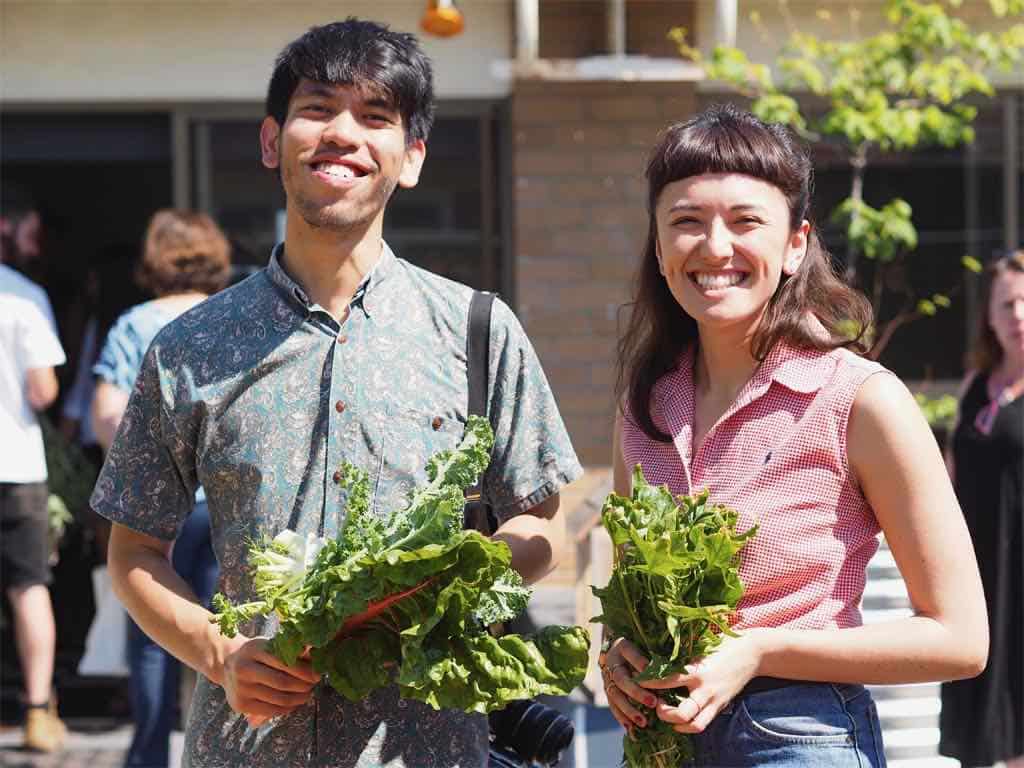
Resources
- Collaborative Economy, European Union – recommendations, guidelines, factsheets
- Peer-to-Peer Solar Energy Trading: A Guide, Energy Matters – sharing energy
- Sharing the Harvest: Kiama’s First Crop and Swap, Milkwood – a crop swap
- The Time Bank Solution, Stanford Social Innovation Review – a history of time banks
- Mutual Aid – Dean Spade A great lil book to get you started.
Books
- No More Throw-Away People, Edgar S Cahn (Essential Books Ltd, 2004) – by the founder and CEO of TimeBanks USA, changing systems to value people
- Jeremy Rifkin’s books – the ‘Green New Deal’ economic and social theorist’s vision for emerging economies
Video
- The Third Industrial Revolution: A Radical New Sharing Economy, Vice, YouTube – Jeremy Rifkin talks about major shifts in economic systems occurring in our time, an interesting perspective

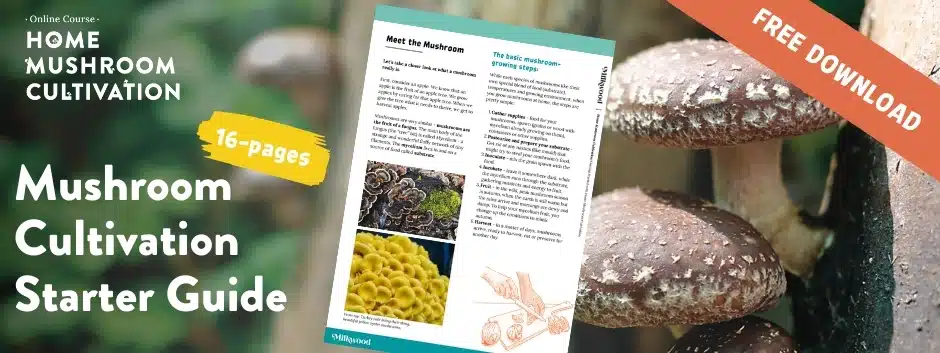
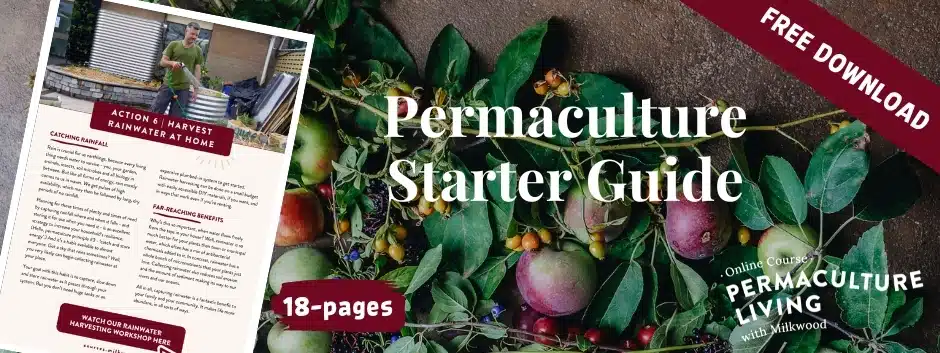
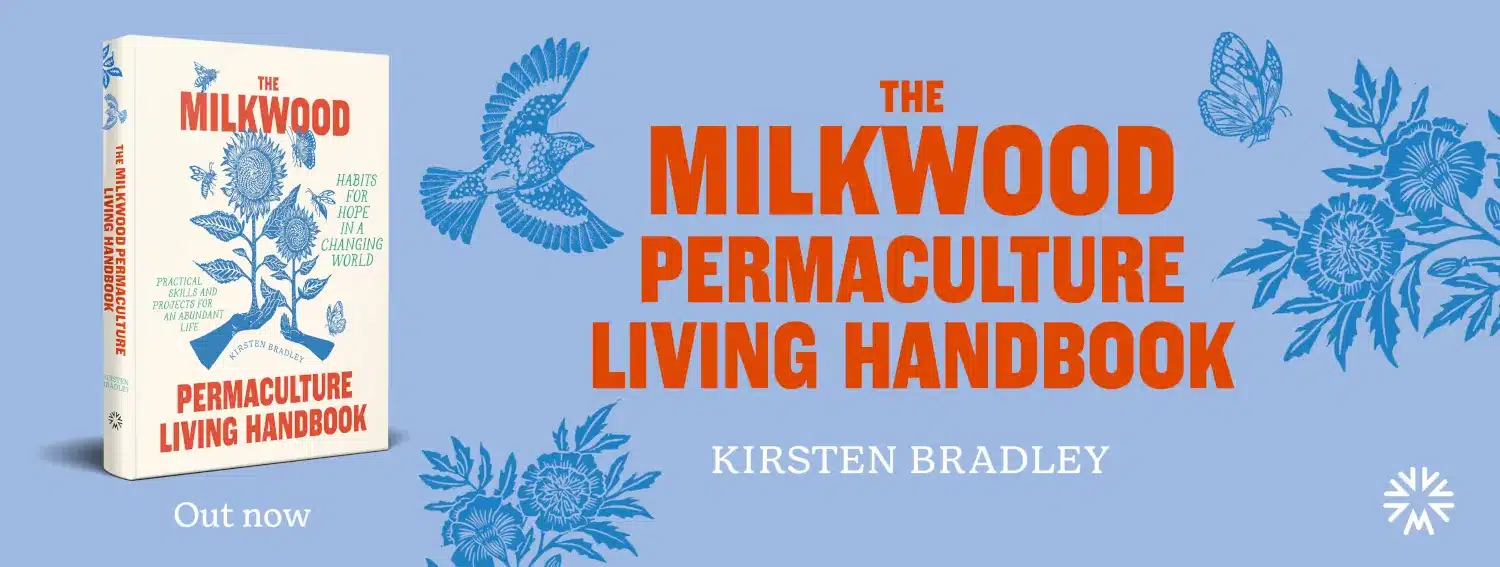
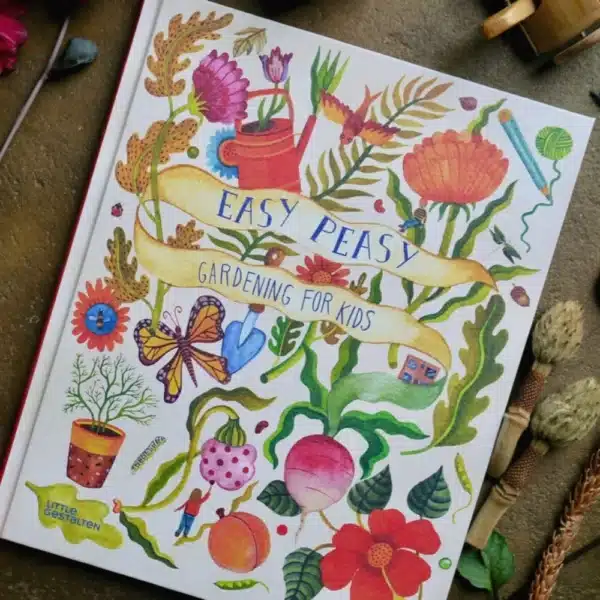
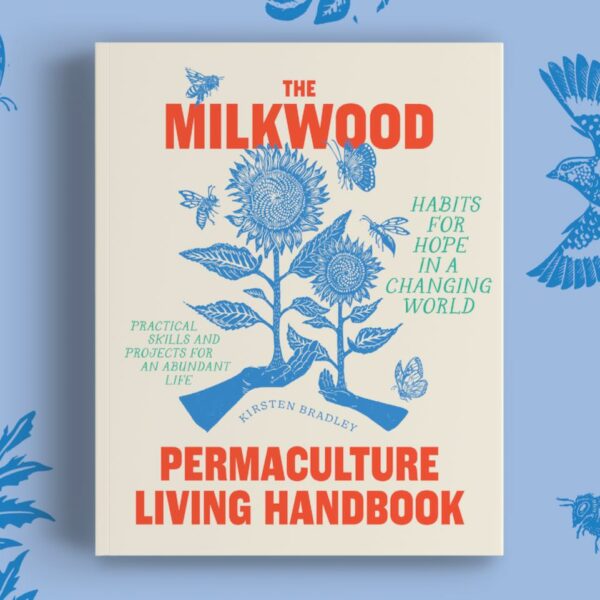
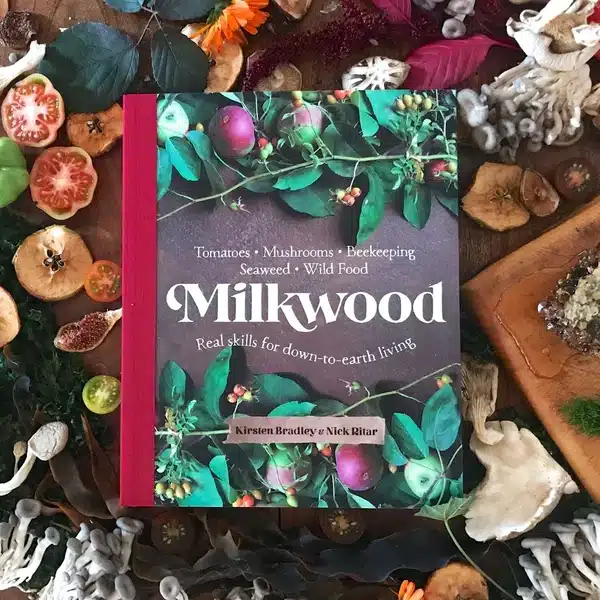






so great to see more people on synchronous wave lengths.
Grass roots expressions of both gifting and barter-trade options
are appearing around the globe. The promise of a more sustainable
and loving interaction between human beings and the greater environment.
Such a simple but powerful idea!
Hi, are these articles the course?
these articles are little snippets of the course content, published here on the blog 🙂 – the course itself has a lot more to it, plus student forums and Q&As 🙂
Such a good read! It’s the same with love – as soon as you start giving it, you feel it inside your body more often and with greater intensity. I started teaching English with a volunteer program that was only meant to last 6 weeks, but now I make the time to do it even after the program ended because I know how much it means to the students. I have the skills and time to give, so why not help out someone who would really appreciate it? Like you said, this creates surplus. There’s plenty to go round. Thanks… Read more »
Such a lovely observation about the differences between gifting and bartering. The last thing one wants to do is to perpetuate inequality. Thank you.
thank you for reading!
That rate city link doesn’t go to anything about the sharing economy
thanks for that pickup, Tara – i’ve replaced it w Dean Spade’s book, which is 10000% more useful anyways 🙂